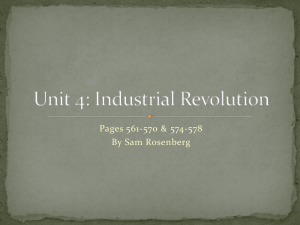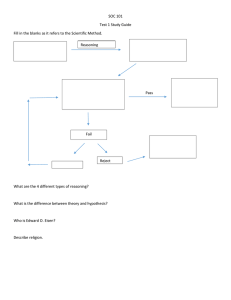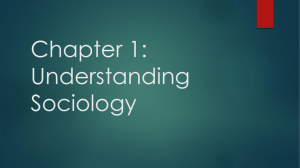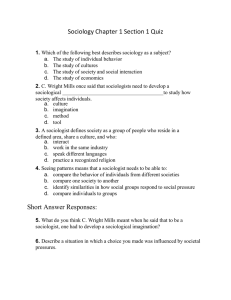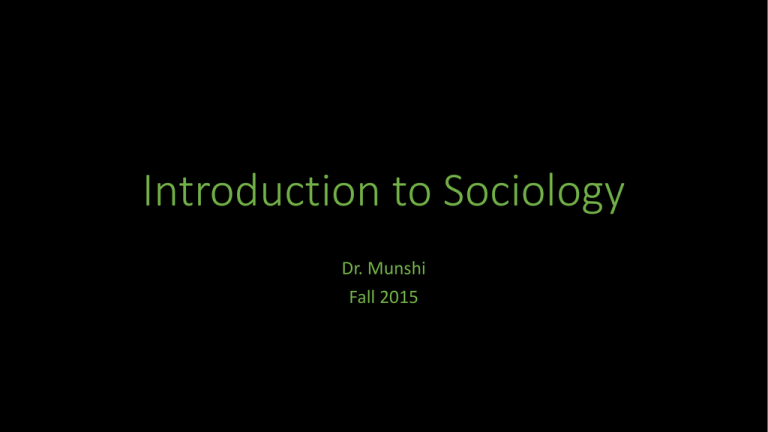
Introduction to Sociology
Dr. Munshi
Fall 2015
Agenda, Wednesday 9.8.15
• Short Quiz
• The Sociological Imagination continued
• Social Theory: Marx
Applying the Sociological Imagination
Think of experiences that you are familiar with, in your own life and the
people around you. Write about one example that illustrates a
"personal trouble" that someone you know has experienced.
**Please protect privacy by not mentioning any real names.
Applying the Sociological Imagination
• Discuss your example with a partner. Together, apply the sociological
imagination to this example. Can you connect the personal trouble to
a public issue?
• (How) Does group membership (like race, gender, ethnicity, culture,
age, sexual orientation, religion) affect the situations?
• What other factors can affect personal problems/public issues?
Sociological Imagination: discussion
“…the individual can understand his own experience & gauge his own
fate only by locating himself within his period, that he can know his
own chances in life by becoming aware of those of all individuals in his
circumstances. In many ways it is a terrible lesson; in many ways a
magnificent one.” (Mills 1959)
What does Mills mean by this?
Do you think it’s a terrible or magnificent lesson?
History of Sociology
• Sociology emerged in a specific place and time: Europe in the
mid/late 1800s
• Industrialization people moving into cities
• Science became a challenge to religion as a way of explaining the world
History of Sociology:
the “founding fathers”
1. Karl Marx
• Critic of capitalism (e.g. 1848, with Engels, wrote “The Manifesto of
the Communist Party”; 1865, wrote Capital)
• The economy is the central change agent in society.
• Economic relationships are social relationships.
Marx: Manifesto of the Communist Party
1. According to Marx, who is the “bourgeoisie” and the “proletariat,”
and what are the differences between these two groups?
2. What does the bourgeoisie do?
3. What is the impact of factories and machines on the proletariat?
*Discuss your answers in pairs. Highlight or mark where in the text you
found your answer.
Marx: on Alienation
Alienation
• Self
• Each other
• Product, what is being created
• Work itself, means of production
Marx: on Alienation
Marx, alienation:
https://www.youtube.com/watch?v=PZ4VzhIuKCQ
Example of alienation today:
https://www.youtube.com/watch?v=zEN4hcZutO0
Marx: on social change
Class conflict
social change to a utopian classless society, achieved through
revolution
Why revolution?
Homework
WE HAVE CLASS TOMORROW (MONDAY SCHEDULE):
• read Weber + answer reading questions
• DUE: Journal #2

